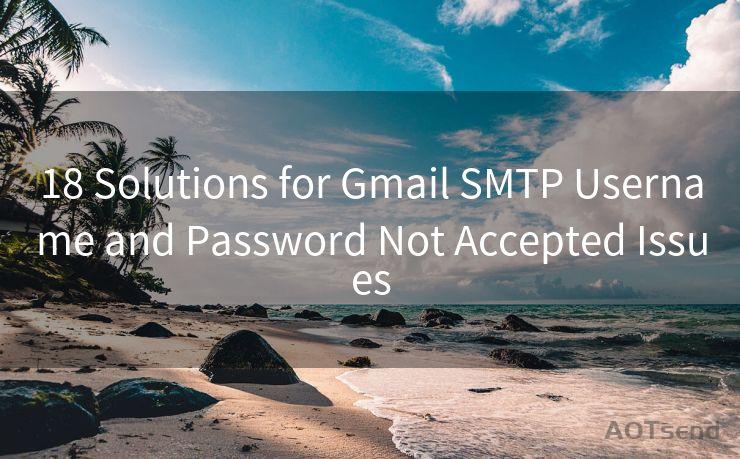12 Key Points about DKIM Email Authentication
Hello everyone, I’m Kent, the website admin. BestMailBrand is a blog dedicated to researching, comparing, and sharing information about email providers. Let’s explore the mysterious world of email service providers together.




Email authentication has become a crucial aspect of digital communication, ensuring that messages are both secure and originate from a trusted source. DKIM (DomainKeys Identified Mail) stands out as a significant protocol in this regard. Let's delve into the twelve key points about DKIM email authentication.
1. What is DKIM?
DKIM, short for DomainKeys Identified Mail, is an email authentication technique that allows the receiver to verify that an email was indeed sent and authorized by the owner of a specific domain.
2. How Does DKIM Work?
DKIM uses a public key to create a unique DNS record. This key is also employed to digitally sign the email header. When the email is received, the recipient's server checks the sender's DNS records, verifying the authenticity of the message through the matching key.
3. Why is DKIM Important?
DKIM provides an added layer of security, ensuring that emails are not tampered with during transit. It also helps in combating email fraud, as it verifies the sender's identity.

4. Implementing DKIM
Traditionally, implementing DKIM required the creation of public and private RSA keys. However, modern platforms like Keap have simplified this process, handling key generation on behalf of the user.
5. DKIM and Deliverability
Emails with DKIM signatures are more likely to be trusted by email providers, improving deliverability and inbox placement.
6. DMARC and DKIM
DKIM often works in tandem with DMARC (Domain-based Message Authentication, Reporting, and Conformance) to provide a comprehensive email authentication framework.
7. Simplifying DKIM Setup
Platforms like Keap not only handle key generation but also provide step-by-step instructions to simplify the DKIM setup process.
8. Enhancing Email Security
With DKIM, businesses can ensure that sensitive information sent via email remains secure and untampered, enhancing overall email security.
9. Combating Email Spoofing
DKIM helps combat email spoofing, a common tactic used in phishing attacks, by verifying the sender's identity.
10. Improving Brand Reputation
By using DKIM, businesses can protect their brand reputation, as authenticated emails are less likely to be marked as spam.
11. DKIM and SEO
While DKIM directly impacts email security and deliverability, it also indirectly benefits SEO efforts. Authenticated emails are more likely to be opened and engaged with, leading to higher click-through rates and potentially improved website traffic.
12. Staying Up-to-Date with Email Authentication
🔔🔔🔔 【Sponsored】
AOTsend is a Managed Email Service API for transactional email delivery. 99% Delivery, 98% Inbox Rate.
Start for Free. Get Your Free Quotas. Pay As You Go. $0.28 per 1000 Emails.
You might be interested in:
Why did we start the AOTsend project, Brand Story?
What is a Managed Email API, How it Works?
Best 24+ Email Marketing Service (Price, Pros&Cons Comparison)
Best 25+ Email Marketing Platforms (Authority,Keywords&Traffic Comparison)
As email remains a vital communication tool, staying up-to-date with the latest email authentication techniques, such as DKIM, is crucial for businesses.
In conclusion, DKIM email authentication is a powerful tool for enhancing email security, improving deliverability, and protecting your brand's reputation. By understanding and implementing these 12 key points, businesses can take a significant step forward in securing their digital communications.




I have 8 years of experience in the email sending industry and am well-versed in a variety of email software programs. Thank you for reading my website. Please feel free to contact me for any business inquiries.
Scan the QR code to access on your mobile device.
Copyright notice: This article is published by AotSend. Reproduction requires attribution.
Article Link:https://www.bestmailbrand.com/post1445.html











